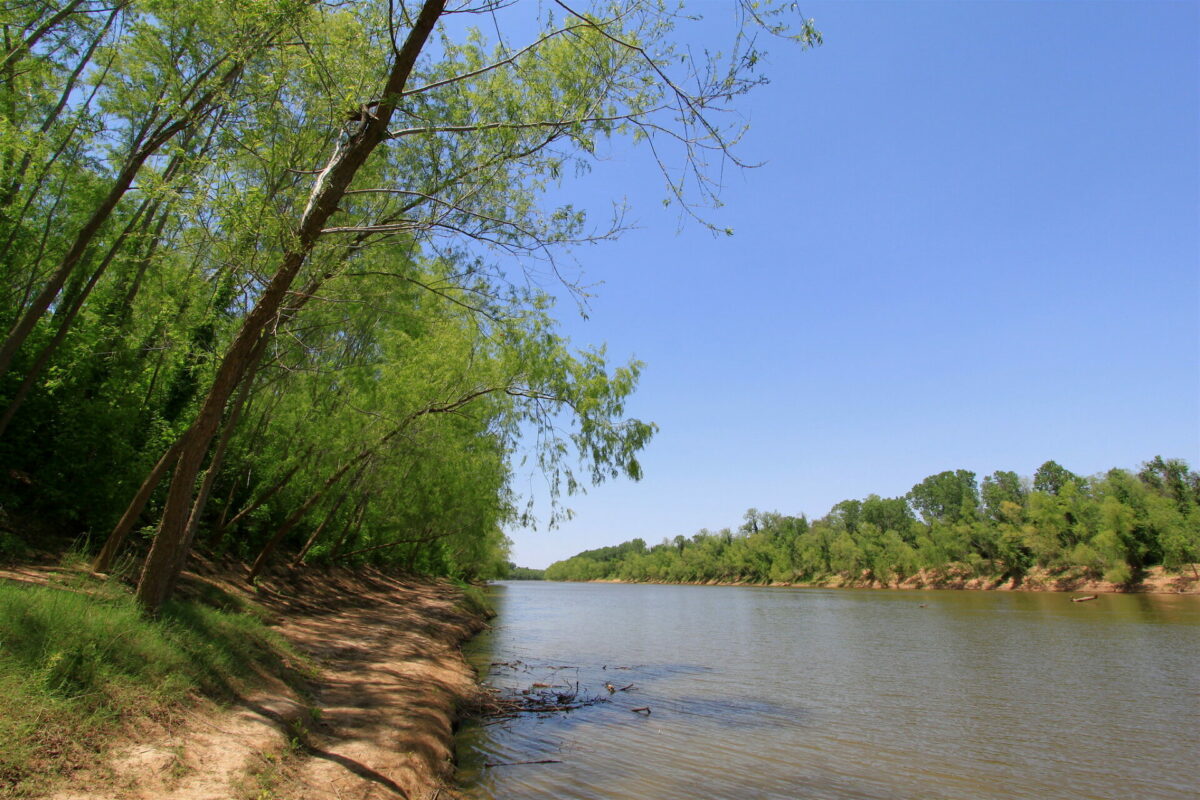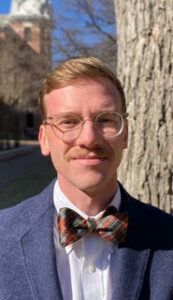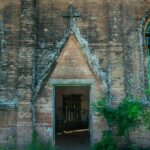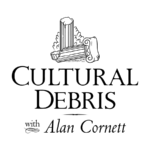Waco, TX. Like many of my generation, I suspect, my path into old-fashioned work and love of the earth did not come naturally. I did not grow up on a farm. I spent some of my youth hunting and fishing, though not enough, and perhaps not in all the right ways, I judge with regret. Baton Rouge has the fortune of being so hot, sunny, and rainy that it encourages any plant which so desires to grow through whatever concrete it can, making for one of America’s greener cities. But that’s most of what passed for nature in my childhood. I spent too much time playing video games on a computer and reading books, which has led to an apparent, but only apparent, maturation into spending too much time reading and writing things as an adult, mostly on a computer.
So I had to be converted. And I’m still on a path of conversion, trying and failing to get closer to a Nature that hardly exists anymore. I build some of my own furniture badly, I compost and recycle badly, and I badly try to kick bad habits and instead watch birds and go hiking and hunting. All of which I badly wish I could do more often but, given the ample time I admittedly have, I don’t. I do help around a local non-profit organic farm once a week, but most of the work I’ve done so far is quite amateur, and in the bad sense of the word.
There is a common concern about the online back-to-the-land movement. How can you live that life you spend so much time chatting about on the internet? There must be an either/or: you get a Twitter account or an apiary—now choose! Unlike others who dismiss such a dichotomy, I am always afflicted by it, prone as I am to such stark choices, thanks to too much time spent reading various philosophers who claim the How is the What. I understand that How we go about our lives in inconsistent ways affects What we care about and want our lives to be. “Be ye therefore perfect, as your Father in heaven is perfect,” I remember, and then consider I am not.
That’s why I’m grateful to have found the writings of John Graves (1920-2013), the beloved Texas author of the “Brazos trilogy” of memoirs about an imperfect life on the Brazos: Goodbye to a River, Hard Scrabble, and From a Limestone Ledge. Beloved, that is, by Texans, but unknown to Louisianans who only moved to Texas for schoolwork (moving away from home: another failure of the Ideal). By chance I read a review of Goodbye a few months ago, and I checked if it was available in the local bookstore (shopping locally: a small success of that Ideal). It was, I bought it, and I was captivated, finishing the the first two of the trilogy in a few weeks’ time.
A problem with the Brazos region of Central Texas is that it’s not very pretty. The natural terrain has been exhausted and flattened by generations of poor care. The Brazos River is almost toxic and smells like it. Suburbia swarms to flattened and unbountiful enough places near interstates, and it’s found plenty of that in the now-growing, once-small city of Waco. What wilder places remain are mostly overgrown thickets. Therefore, Central Texas is a hard place to learn to love.
John Graves agreed. In the Fifties, he took a three-week canoe trip down the Brazos when a dam project promised to irrevocably change the river and its landscape. That trip became Goodbye to a River, in which he meditates on the brutal history between the Comanche and pioneers of the region, his enjoyment of simple camping and peculiar people, his sadness at the passing of time—and the trash and shotgun shells which litter the river. The Brazos seemed already something to be bidden farewell, given its past and its present as much as its future.
But something kept Graves attached to the Brazos and its surrounding cedars. So, near Glen Rose where he was raised, he bought a piece of exhausted land and named it “Hard Scrabble.” Its eponymous book describes those acres of cedar, weedy pastures, limestone cliffs, people, livestock, wildlife, and the years of work demanded to turn that land into something pleasant for him and his family. Throughout, Graves narrates his amateur attempts to wrestle with what he calls “the Way,” through which all things come and go and thwart his plans for healthy crops and kempt pastures and fat cows. It’s no spoiler to say that the Way wins.
As he wrestles, Graves indulges in local history and regional processes and problems. He divulges his peculiar habits when working in the field or in his shop. I was delighted to discover that Graves too talks to himself and his tools in a funny voice when alone at work.
His life looks like the one any back-to-the-land convert will likely live today. By his own account, he was a wanderer, but he found his way back home. Yet he found it by making it a home, and making it badly, slowly, unartfully, but affectionately. The millennially imperfect Porcher may appreciate his confessions of occasional fertilizer and pesticide use, his opinion that KR grass, an invasive species, has its laudable uses, and finally, his acceptance that his patch of Hard Scrabble shall one day return to the Way of unkempt cedar brake just as he found it, after his time is up. No perfectionist, he, nor I.
Still he tries, and fails, and tries again, and he fails in the end. For he gets old, and he can no longer care for it as he once did, and he can only leave it for another prospective “O.F.” to learn the same Way he learned. —Let the reader learn for herself what “O.F.” stands for.
None of it is perfect, but it is right, to quote Tanya Berry. And therefore, Graves’s work and writing are suffused with a gentle humor and humility. He stops using pesticides so he can keep bees. He chuckles at wily neighbors but asks them for help and helps in return. He refuses polemics on matters of Anglo settlers or suburbanites, progressives or conservatives, Comanche killers or Tonkawan refugees, even as he declines, at times, a contemporary political correctness. He just likes people, places, and things too much to be bitter, or to speak of them in any way less than directly. And that directness offers grace and affection, never anger, in both the How and the What of his memoirs. No small feat in agrarian writing.
All of which writing culminates in an oddest interjection at the conclusion of Hard Scrabble. Though not a particularly religious man, Graves pauses with the parenthetical thought:
God is not dead, he’s just hiding in the dirt. Massa’s in de cold, cold ground?
“Hiding in the dirt.” Does he think God still needs to be resurrected? Or is it rather that the How and the What, the Way of God, hides in the dirt alive and well, only waiting to be discovered again and worked for?
(I will not be so foolish as to interpret the second line.)
In any case, thanks to Mr. Graves, who died in his home at Hard Scrabble ten years ago, I now know to call those winter fronts that come through Central Texas “northers”; that “a goat’s looking for a place to get out, a sheep’s looking for a place to die”; that Johnson and KR grasses are menaces but we should learn to love them as well, and goats kill them best; and that, with some little local knowledge now in mind—which came by reading books, despite those purisms about the special bookless knowledge of peasants!—I too may, day by day, attune myself to the Way, How ever imperfectly I go about What I am striving to do. Perhaps that is the Way itself, to try and fail and try again and fail again, until we too have become part of the Way.
The Brazos River is still beautiful at sunset, when the birds are feeding and singing overhead.
Image by Roy Luck: Brazos River at Stephen F. Austin State Park TX







4 comments
Mike Thompson
All Texans should read “Goodbye to a River”
Jason Moon
Glad you discovered Graves. He certainly has meant a lot to me. I think I can trace my interest in birds and imperfect urban homesteading back to his books, and probably more importantly he gave me a deeper appreciation for the people and places of my home turf. You should try to explore stretches of the Brazos upstream from Waco. None of it is wild, of course, but there are stretches where you can escape suburbia.
Brian D Miller
Learning to love the place you put up your feet, that can be a struggle. Particularly, Casey, if you are doing that somewhere else but in the land that mothered us both. That love is something that I still tussle with and the recent influx of Covid refugees makes more difficult. So, thanks for this sweet assessment of Graves. I’ll seek out the trilogy. And like you, I’m not ashamed to seek in books where my bookless wisdom falls short.
Casey Spinks
Thank you, Brian. Irony of ironies, I’d only learned to really love that place about two years before I’d have to leave it. I still drive back often enough, and I’ll get some boiled crawfish next week.
The lesson about book wisdom vs. bookless wisdom and accepting that book wisdom is fine enough for the modest—though only briefly mentioned in this review—turned out to be one of the more important Graves taught me.
Comments are closed.